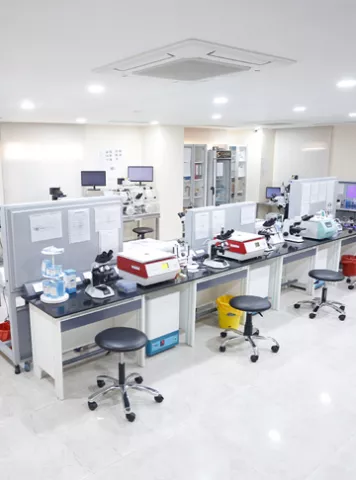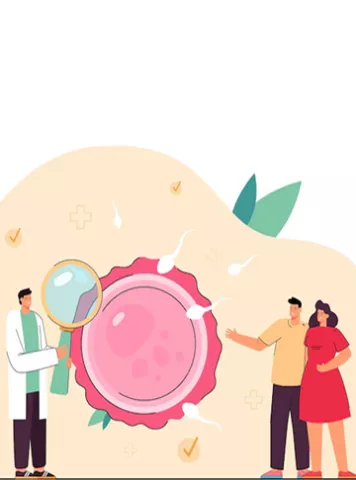When a couple undergoes IVF or test tube baby treatment, they are in a turmoil as to what they can and should do; and what they shouldn’t do or avoid, so that they achieve a successful pregnancy. Not only the couple themselves, but their friends and relatives are also concerned for a positive result and hence they are surrounded with a ton of advice regarding what should be done and what should not be done. While sometimes this advice can be helpful, at other times, not so much. All in all, it just adds to the confusion and concern of the woman.
Actually, embryo implantation or achieving a pregnancy after IVF largely depends upon the embryo quality and the uterine receptivity. However, a lot of other factors also come into play to bring about a successful pregnancy outcome after IVF treatment.
There are many myths and misconceptions regarding IVF treatment and embryo transfer. However, couples undergoing
IVF need to be aware of some do’s and dont’s that are to be followed after the embryos are transferred.
DO’S
1. Take adequate rest; at least 8 hours of sleep at night and two hours rest during the day is essential to keep yourself calm and relaxed.
2. Take a healthy balanced diet rich in iron and proteins, prepared at home, which suits your acceptance and likings. Make sure that you are including all necessary macro and micro-nutrients required during pregnancy.
3. A very important point is to listen to your doctor and follow all instructions and take your medications regularly as prescribed by the doctor.
4. Stay well hydrated. Drink at least 3-4 litres of water and other fluids like juices, coconut water, milk etc. daily.
5. It is very important to stay mentally fit. Try to keep yourself happy and engaged at least in day to day activities and keep moving as this releases endorphins to keep u calm and happy. Surround yourself with your partner and family members who make you comfortable and happy.
Dont’s
1. Avoid too much of bed rest. This the most common myth among people that if they don’t move and take 24 hours bed rest then the embryos will not fall off and will stick to the uterine lining. However, it’s only a myth as no increase in implantation rates have been observed in women who took more than required rest. Rather, other complications related to excess bed rest and sedentary lifestyle, like deep vein thrombosis and excessive stress are seen in such women.
2. Don’t panic. Don’t bother yourself with the burden of stress as to what will be the result of your IVF. We understand that the two weeks following embryo transfer are the hardest to get by. It is no less than awaiting the result of the most important exam of your life. However, you just have to keep calm and remain optimistic. You can achieve this by preventing the company of pessimists, trying some meditation and keeping yourself engaged in your favourite hobbies and routine activities.
3. Avoid exposure to extreme temperatures. It is seen that a very hot environment can prevent gametogenesis as well lead to implantation failures and even early abortions or miscarriages. So, it is best to avoid hot baths and sauna
4. Strictly avoid smoking, alcohol or tobacco. Caffeine intake also has to be in moderation. As certain compounds in these substances can lead to reduced implantation and early miscarriages. It also can lead to certain birth defects.
5. Avoid lifting heavy weights and strenuous physical exercise as these can lead to increase in intra-abdominal pressure and can cause miscarriage.
6. Other things which need to be avoided include travelling too much, hair colouring, swimming in dirty ponds and eating spicy and outside food. Also it is best to avoid sexual intercourse at least during the initial few days post embryo transfer as it may hinder implantation.
Articles
2022


Guide to infertility treatments Blastocyst Culture And Transfer
6 Sexually Transmitted Diseases (STDs) that can make you infertile!
The relation between STD & Infertility- Besides preventing pregnancy, t...
2022


Guide to infertility treatments Blastocyst Culture And Transfer
What Is The Best Advice After Embryo Transfer
In Vitro Fertilisation, popularly referred as IVF has captured attention since...
2022


Guide to infertility treatments Blastocyst Culture And Transfer
Elective single embryo transfer (eSET): A safe option in IVF
What is Single Embryo transfer or SET? Single embryo transfer (SET)is an el...
2022


Guide to infertility treatments Blastocyst Culture And Transfer
What are the Benefits of Frozen Embryo transfer?
Frozen Embryo Childlessness was considered a social stigma since ages. Mill...
2022


Guide to infertility treatments Blastocyst Culture And Transfer
Quality control (QC) concerning pH, temperature and osmolality in the embryology lab
The efficiency of the embryology lab protocols can be improved by conducting r...
2022


Guide to infertility treatments Blastocyst Culture And Transfer
Can Single Embryo Transfer Result in Twins?
As the quote by Josh billing “there are two things in life for which we are ...
2022


Guide to infertility treatments Blastocyst Culture And Transfer
Single or Multiple Embryo Transfer – Necessary Points to Know
Embryo Transfer Even though science can give a lot of options, it is not ne...
2022


Guide to infertility treatments Blastocyst Culture And Transfer
In IVF ICSI, What could cause embryos to stop developing
In IVF ICSI, What could cause embryos to stop developing In IVF /ICSI it is...
2020


Guide to infertility treatments Blastocyst Culture And Transfer
What is the diet i require to take after the embryo transfer?
In vitro fertilization is one of the most advanced techniques in the field of ...
Pregnancy Calculator Tools for Confident and Stress-Free Pregnancy Planning
Get quick understanding of your fertility cycle and accordingly make a schedule to track it














